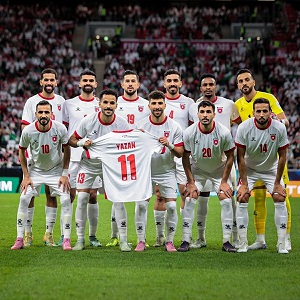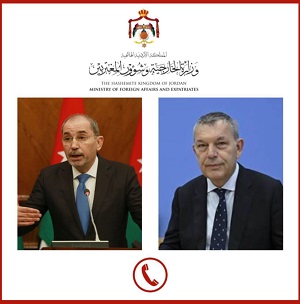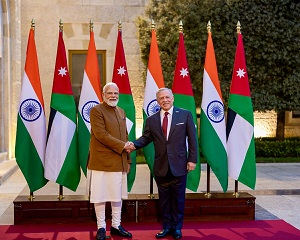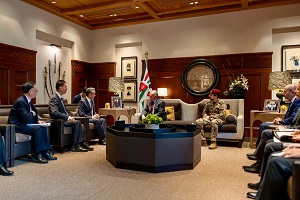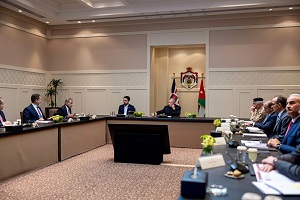For decades, countries engaging with economic restructuring programs under the guidance of the International Monetary Fund (IMF) have faced numerous challenges, which are promoted as solutions to financial crises. The IMF and World Bank Spring Meetings are scheduled to take place in mid-April next.
My participation in many of the annual and spring meetings of the IMF and the World Bank, in addition to regional meetings, provided a unique opportunity to closely observe how these significant institutions address global and regional economic and financial issues.
It is worth noting that the dialogue and consultations conducted by representatives of civil society organizations and independent experts at these meetings with experts and administrators of these institutions reveal fundamental challenges related to economic growth inclusiveness, social protection, respect for human rights, and international labor standards, and dealing with the impacts of climate change.
Moreover, the debate about the ability of debtor governments to repay their debts and its effect on their public spending capabilities, especially in social protection, emerges as a significant issue in this context.
The World Bank's protective safeguard policies, which include a set of social and environmental standards, represent an attempt to balance economic development achievement and the protection of people's fundamental rights. However, the actual application of these standards and the extent of the partners' commitment to them remains questionable.
The World Bank's protective safeguard policies, which include a set of social and environmental standards, represent an attempt to balance economic development achievement and the protection of people's fundamental rights. However, the actual application of these standards and the extent of the partners' commitment to them remains questionable.
The internal governance of these institutions also becomes a topic for discussion, where a limited number of Western countries control the decision-making process, raising questions about fairness and balance in their economic and financial orientations. This control affects the ability of these institutions to achieve their stated goals of promoting inclusive economic growth and sustainable development in developing and emerging countries.
It is noteworthy that the direct objectives of the financial restructuring ‘reform’ programs, implemented over the past decades in the majority of countries engaged with the IMF, have not achieved the desired outcomes, and in many of them, the economic and social situations have worsened.
The experiences of many countries reveal numerous challenges in reducing debt and deficit levels without sacrificing public spending in vital areas such as education, healthcare, and social protection. Therefore, in the few cases where improvements in public budget deficits were observed, it was at the expense of essential aspects of citizens' economic and social rights, reaffirming the significant challenges countries face in achieving a balance between financial stability and social and economic development.
In this context, the role of financial and monetary stability and its effects on different social groups emerges as another discussion topic, where vulnerable social groups disproportionately bear the cost of achieving this stability. This leads to an urgent need for these institutions, especially the IMF, to reconsider their directives and ‘conditions’ from the perspective of their policies' impacts on sustainable development levels and human rights.
The experiences of many countries reveal numerous challenges in reducing debt and deficit levels without sacrificing public spending in vital areas such as education, healthcare, and social protection.
Furthermore, issues related to the internal governance of these institutions and their decision-making mechanisms require a critical evaluation that considers the principle of transparency and fair participation of all member countries, particularly the developing ones directly affected by their decisions, to ensure a greater balance of power and influence within these institutions for an equitable and effective representation of all members' interests.
The internal governance of these institutions also becomes a topic for discussion, where a limited number of Western countries control the decision-making process, raising questions about fairness and balance in their economic and financial orientations. This control affects the ability of these institutions to achieve their stated goals of promoting inclusive economic growth and sustainable development in developing and emerging countries.
Additionally, an absence of fairness in the distribution system of Special Drawing Rights and the Surcharges-extra charges -imposed by the IMF on borrowers exceeding a certain debt ceiling.
It is also important to focus on the role that consultations with civil society can play in enhancing transparency and accountability and their potential impact on the decisions and economic directions of the IMF and World Bank. Efforts should be made to enhance these consultations to make them more effective and influential in shaping financial and economic policies, especially concerning the economic and social rights of people.
Finally, the question of the effectiveness of the safeguard policies operated and promoted by the World Bank and the extent of the commitment of countries and partner institutions to them arises, where these policies must be an integral part of financing operations to ensure the achievement of sustainable and inclusive development that respects fundamental human rights and protects the environment.
